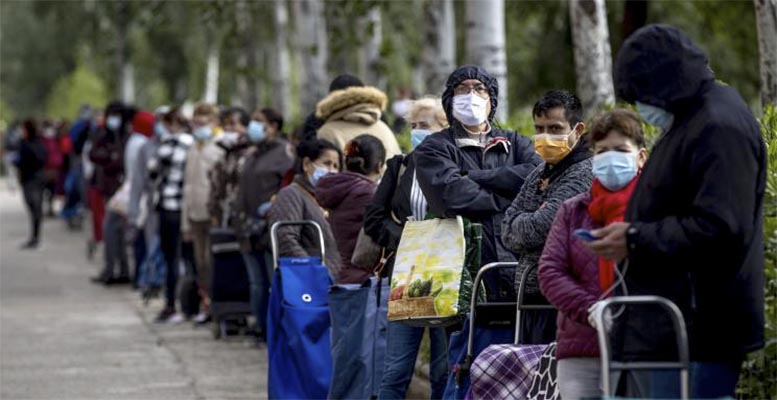The socio-economic consequences of the pandemic could increase the number of people living in poverty in Spain by more than 1.1 million if no further measures are taken, according to new estimates by Oxfam Intermón. With this increase, the total number would reach 10.9 million people, rising from 20.7% of the population before COVID-19 to 23.07% after the impact of the pandemic. At an international level, the organization highlights that for the first time in 20 years, extreme poverty will increase.
The calculations and estimates of the data on poverty in Spain have been carried out by Oxfam Intermon together with independent experts. They take into account the forecasts for a decline in GDP and an increase in unemployment made by different international and Spanish organizations.
The poverty projection data of this methodology has been revised with the new 2019 data referring to the 2018 poverty situation.
The poverty data for 2018 has improved slightly with respect to 2017, so the projection would go from the more than 700,000 people predicted in June to 1,100,000 with this new data.
The organization considers it essential that the General State Budgets (GSB) pay attention to the most vulnerable people, those who are having the worst time. “It is urgent to alleviate the effects of the socioeconomic crisis, both within and outside our borders, so that no one is left behind. That is why we are asking the government to implement measures to safeguard public services such as education and health, and to strengthen social protection, especially by increasing the minimum subsistence income,” says Franc Cortada, general director of Oxfam Intermón.
Increasing poverty
The devastating effects of the pandemic in terms of poverty and inequality go beyond our borders. The World Bank warns that extreme global poverty would increase for the first time in more than 20 years. As many as 115 million more people could suffer from it this year.
The organisation’s new report Later It Will Be Too Late, shows how the pandemic has aggravated poverty and the food crisis. More than 55 million people are at risk of extreme hunger in seven countries around the world, which face severe and extreme levels of food insecurity: Yemen, the Democratic Republic of Congo, Nigeria, Burkina Faso, Afghanistan, Southern Sudan and Somalia. The organisation warns that funding for humanitarian response to this situation is extremely low.





